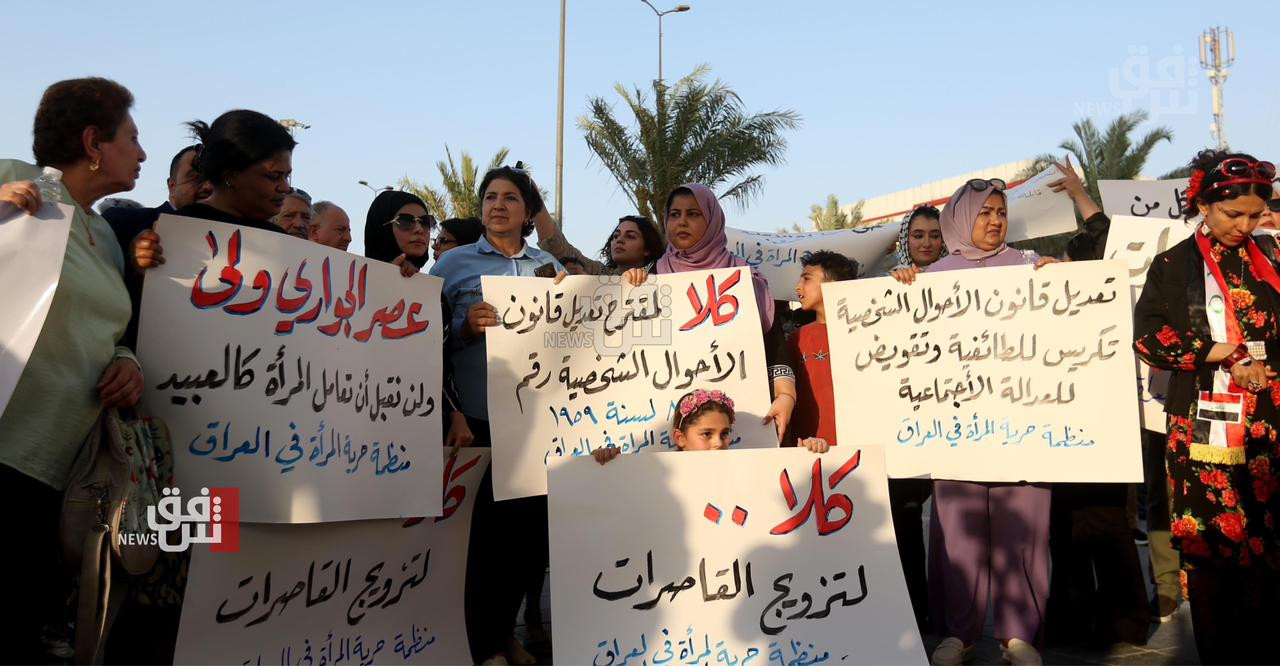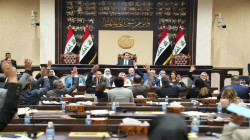Iraq's proposed law could legalize child marriage for girls as young as 9: Human Rights Watch

Shafaq News/ Iraq’s parliament is pushing forward a controversial amendment that could legalize child marriage, sparking widespread protest. The proposed changes to Iraq’s Personal Status Law would allow girls as young as 9 and boys as young as 15 to marry, undermining equality before the law and stripping protections for women in divorce and inheritance cases, a report from Human Rights Watch affirmed on Thursday.
Despite public outrage, some lawmakers continue to back the amendment. According to Human Rights Watch, “This amendment could legalize child marriage for girls as young as 9 and boys as young as 15,” raising alarm among women’s rights advocates. The current Personal Status Law, adopted in 1959, was once considered progressive for the region, balancing civil rights for men and women within the framework of Islamic law. The proposed amendment would overturn this by allowing couples to choose whether their marriage follows civil law or specific Islamic jurisprudence, effectively establishing separate legal regimes based on sectarian lines.
As Human Rights Watch reports, “The amendment would mean that sect, not citizenship, dictates which rights Iraqis are afforded in their personal lives,” a move that critics warn would further entrench sectarianism. Article 14 of the Iraqi constitution guarantees legal equality, but this amendment could erase that right.
The consequences of passing the amendment would be profound. As the report notes, “One girl may be protected from child marriage, while her classmate is forced into it. One daughter may inherit land after her parents’ death, while her neighbor is denied this right.” In cases of dispute over which sect’s laws should apply, the amendment prioritizes the husband’s sect, which Human Rights Watch highlights as a clear violation of international human rights obligations.
Currently, marriages conducted by religious leaders without registration are illegal in Iraq, but this amendment would legalize them, further institutionalizing child marriage. Based on the report, unregistered marriages already act as a loophole for child marriages. In 2023, UNICEF revealed that 28% of Iraqi girls marry before turning 18, and the UN Assistance Mission in Iraq (UNAMI) found in 2021 that 22% of unregistered marriages involved girls younger than 14.
The proposed changes could also have severe repercussions for women’s access to essential services. Human Rights Watch warns, “Women and girls in unregistered marriages face challenges obtaining government services, registering births, and even accessing healthcare.” Without a civil marriage certificate, they cannot give birth in hospitals, forcing many to deliver at home without emergency medical services, which increases risks for both mother and child.
Amid Iraq's fragile sectarian tensions, the amendment threatens the country’s stability, the human rights organization notes, “Beyond dismantling hard-won protections for women’s rights, this amendment could change the social fabric of the country.” Despite these risks, the bill has bypassed public consultation, allowing religious institutions six months to draft a personal status code based on Sharia rulings for parliamentary approval.
Iraqi lawmakers defending the bill argue that it grants “freedom of choice” and protects Iraq from Western secular influences. But the pushback has been led by Iraqi women themselves. According to the organization, “It was the tireless organizing of Iraqi women that led to the postponement of the second reading of the bill initially set for September 3.” However, on September 16, parliament moved forward with the second reading, bringing the bill closer to a vote.
Public opposition to the amendment is overwhelming. A survey by the Iraq Polling Team in August found that 73.2% of respondents opposed the amendment, and 81.6% favored a civil Personal Status Law. Despite this, political leaders appear determined to push the bill through.
Should the bill pass, it would signal a setback for Iraq’s democracy and its commitment to human rights. As Human Rights Watch concludes, “If this law passes, it will be Iraqi women and girls who pay the heaviest price."
Disclaimer: The views presented by the author do not necessarily reflect the official standpoint of Shafaq News Agency.





